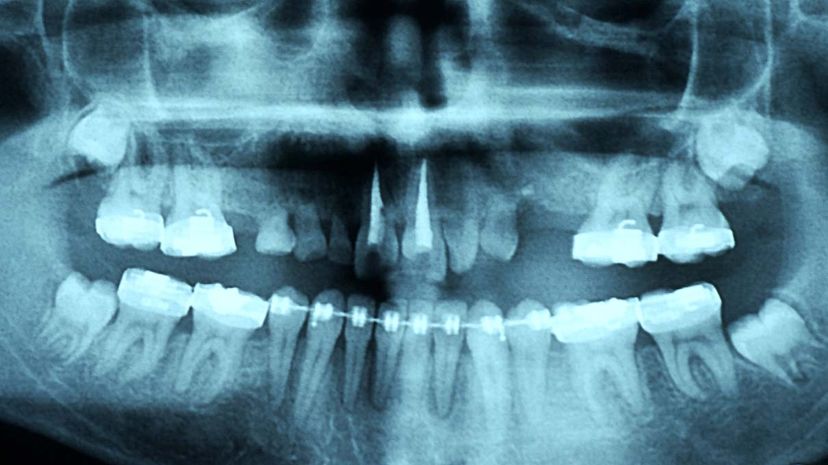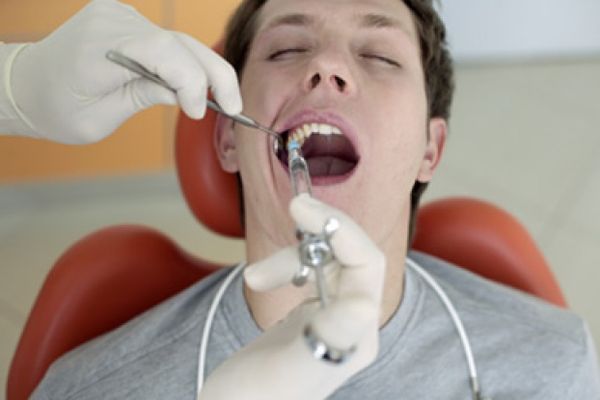
We all like a visit from the tooth fairy, but isn't it kind of weird that we're born essentially toothless, a set of teeth grows in when we're babies, and then we lose those to make room for our comparatively giant adult teeth? The vast majority of mammals grow two sets of teeth during their lives. Our young are born toothless because mammals produce milk for their young, and mothers definitely don't want to be nursing babies with rows of sharp teeth. Losing our baby teeth — also called deciduous teeth because they fall out of our heads like autumn leaves — allows us to change our diet as we mature, and makes the most of the food-grinding capacity of our growing jaws.
So, what happens when we get our primary teeth as babies, but our adult teeth don't come in? Do we just keep our tiny baby teeth forever?
Advertisement
There are a few different conditions that could lead to someone not losing their primary teeth, and dentists have their ways of dealing with each, depending on whether the permanent teeth are sitting right up there waiting for the coach to put 'em in, or whether they just didn't make it to the game.


